Google’s search results aren’t set in stone—they’re always changing.
But when there’s a major change in search intent for a keyword, the top websites can lose rankings through no fault of their own if they don’t match the new dominant search intent. I call this phenomenon search intent shift.
In this article, I’ll share seven examples of search intent shift and show how to use Ahrefs to identify it.
Search intent shifts happen because words change meaning over time, and Google needs to reflect this change—otherwise, it can’t fulfill its mission to provide the best search results for its users.
Sidenote.
I found these search intent shift examples by using the Identify Intents feature in Keywords Explorer’s SERP Overview.
To use this feature:
- Enter a keyword in Keywords Explorer
- Scroll down to the SERP Overview
- Select two dates to compare
- Click the ✨ Identify Intents button
- Toggle between the dates and compare the most popular search intents

Here are seven examples of search intent shift.
“Oasis” means different things to different people. It could be a fertile spot in the desert, a drink, a fashion brand, or even a ‘90s Britpop band.
Until recently, all these elements happily co-existed in the Oasis SERP until Oasis [the band] announced the surprise news that they were getting back together on August 27, 2024.
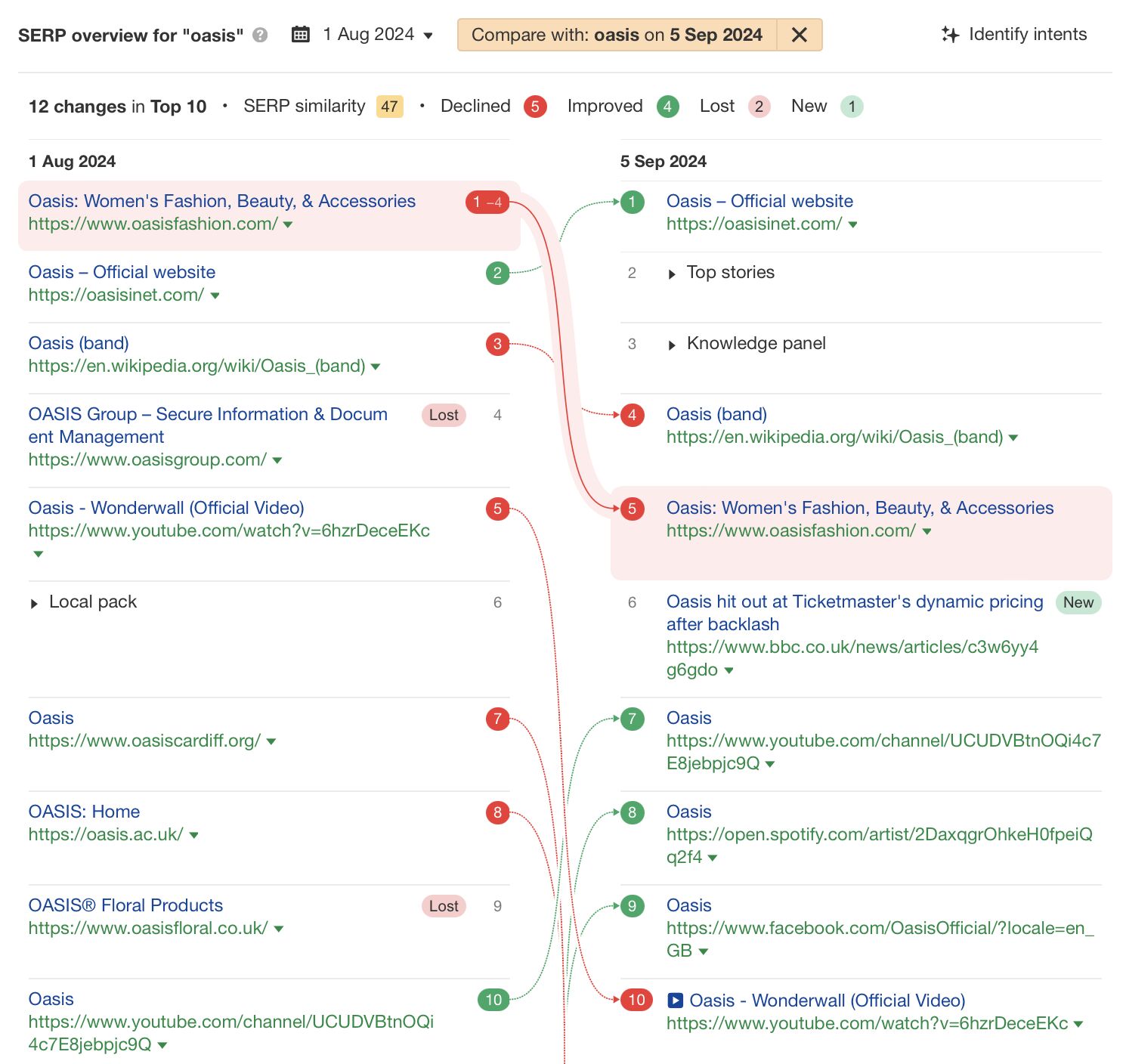

Credit to Carrie Rose for spotting this example originally
What happened?
Before the announcement, the dominant search intent for this SERP was 93% women’s fashion and accessories.
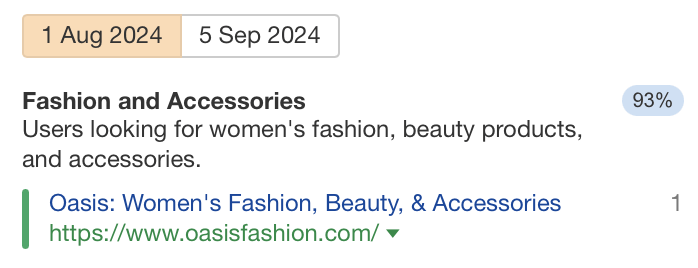

But after the announcement, it shifted to ~93% about the band Oasis.
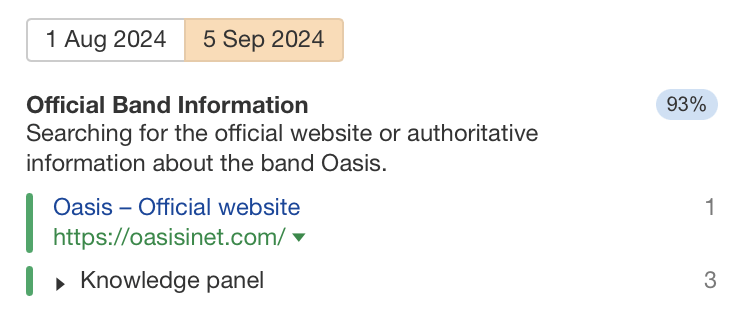

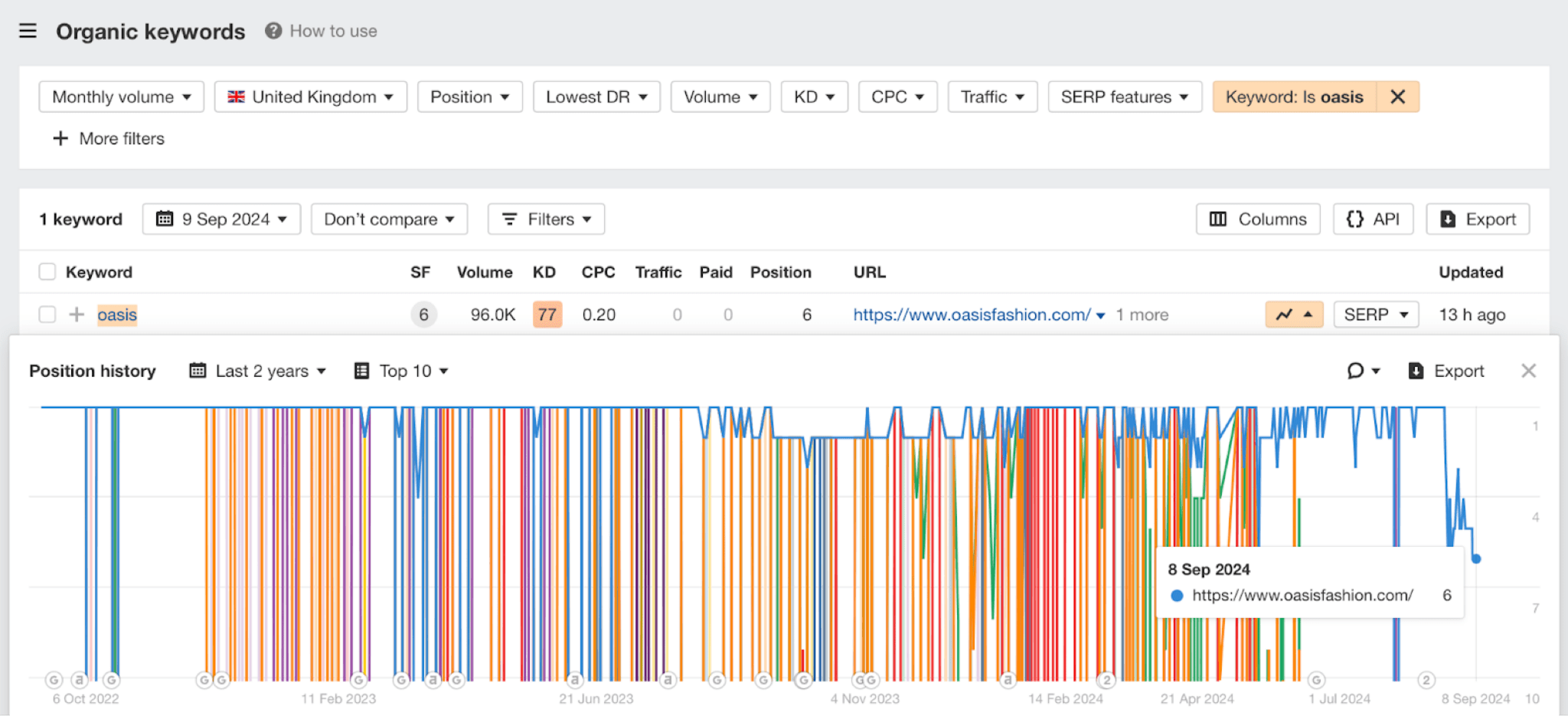

Subsequently, Oasis Fashion dropped in rankings for the keyword “oasis.” This is because it didn’t match the new dominant intent following the announcement.
Is recovery possible?
Yes—but it’ll take time. The Oasis reunion is very newsworthy in the UK and will likely be in the news for the foreseeable future, but once the hype has died down, Oasis Fashion will probably have another shot at the top spot for their brand term.
When Queen Elizabeth II died on September 8, 2022, several search intent shifts related to the royal family started as royal family members’ titles changed.
One notable example was the keyword “King Charles.” Before the Queen died, the top results were King Charles’ dog breed, King Charles I, a band, and a school called King Charles.
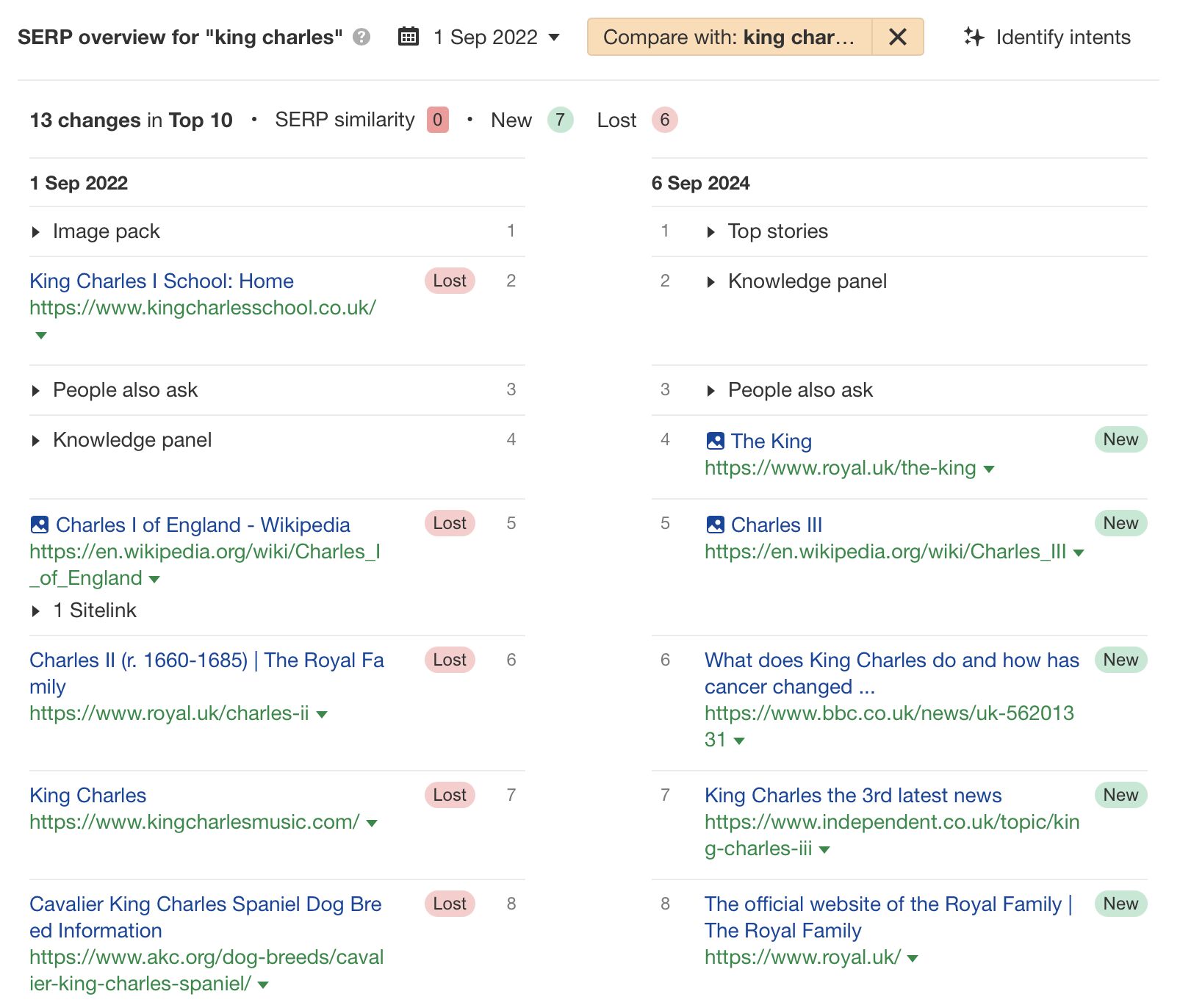

What happened?
The dominant search intent started as ~89% searching for images of King Charles Spaniel dogs.
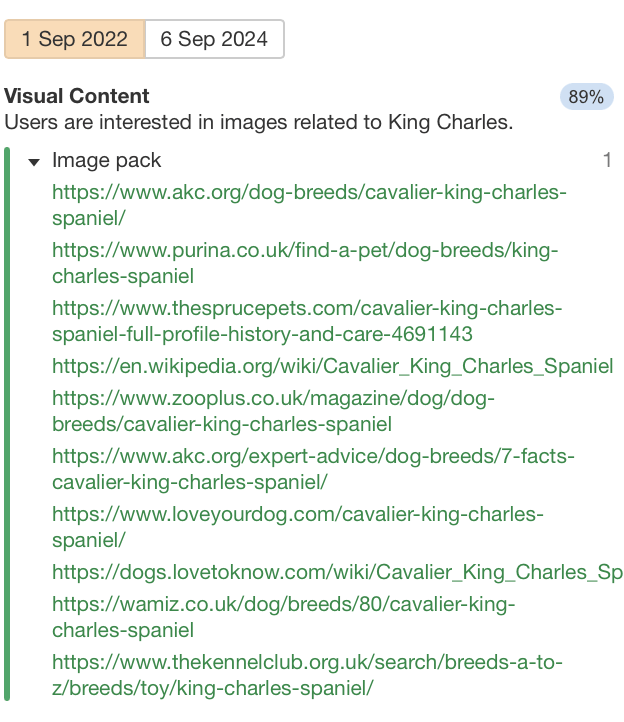

But by September 6, 2024, ~81% of searchers were looking for the latest news about Charles III, and ~10% were looking for biographical information about King Charles III.
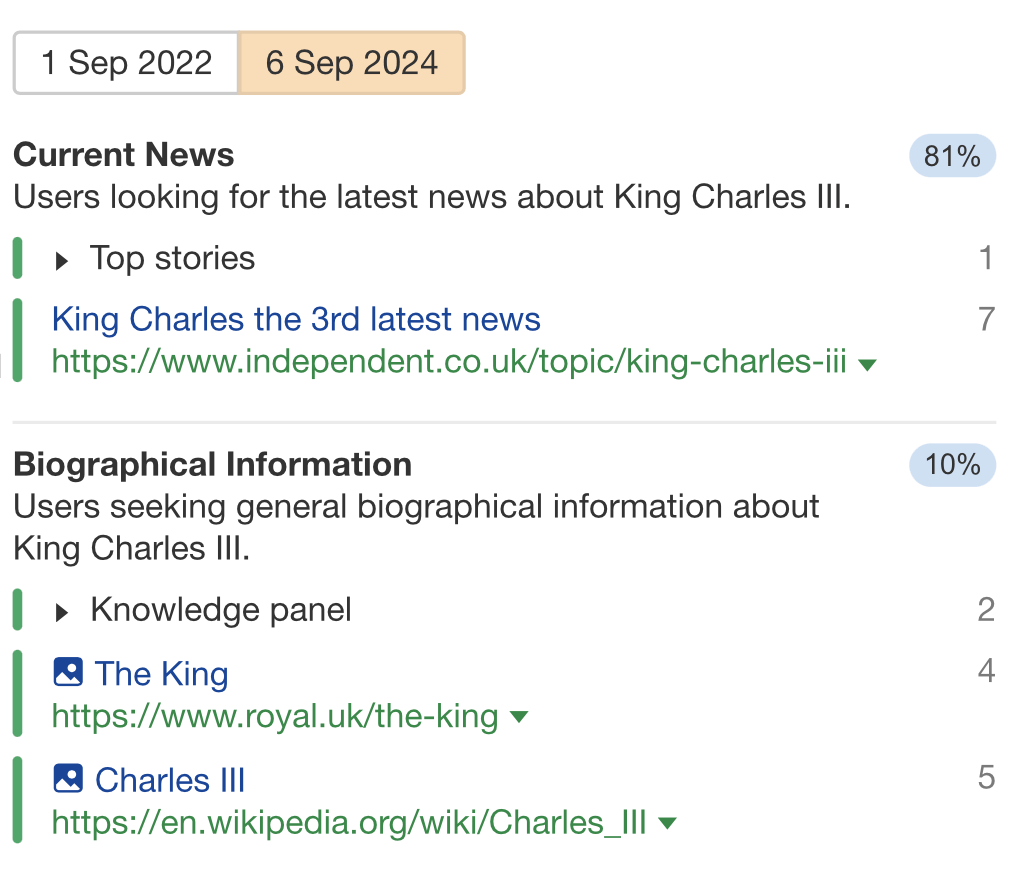

There had been a colossal search intent shift, which meant that the other meanings were relegated to page two and beyond in Google’s search results.
Is recovery possible?
In this example, it seems unlikely that the previous results will ever outrank the new entrants. This is because the constant press coverage around King Charles III will continue until the King dies—and even then, it might not stop.
We can see this with the keyword “the queen.” Even though Queen Elizabeth II has been dead for two years, she is still more associated with that keyword than the current Queen Consort.
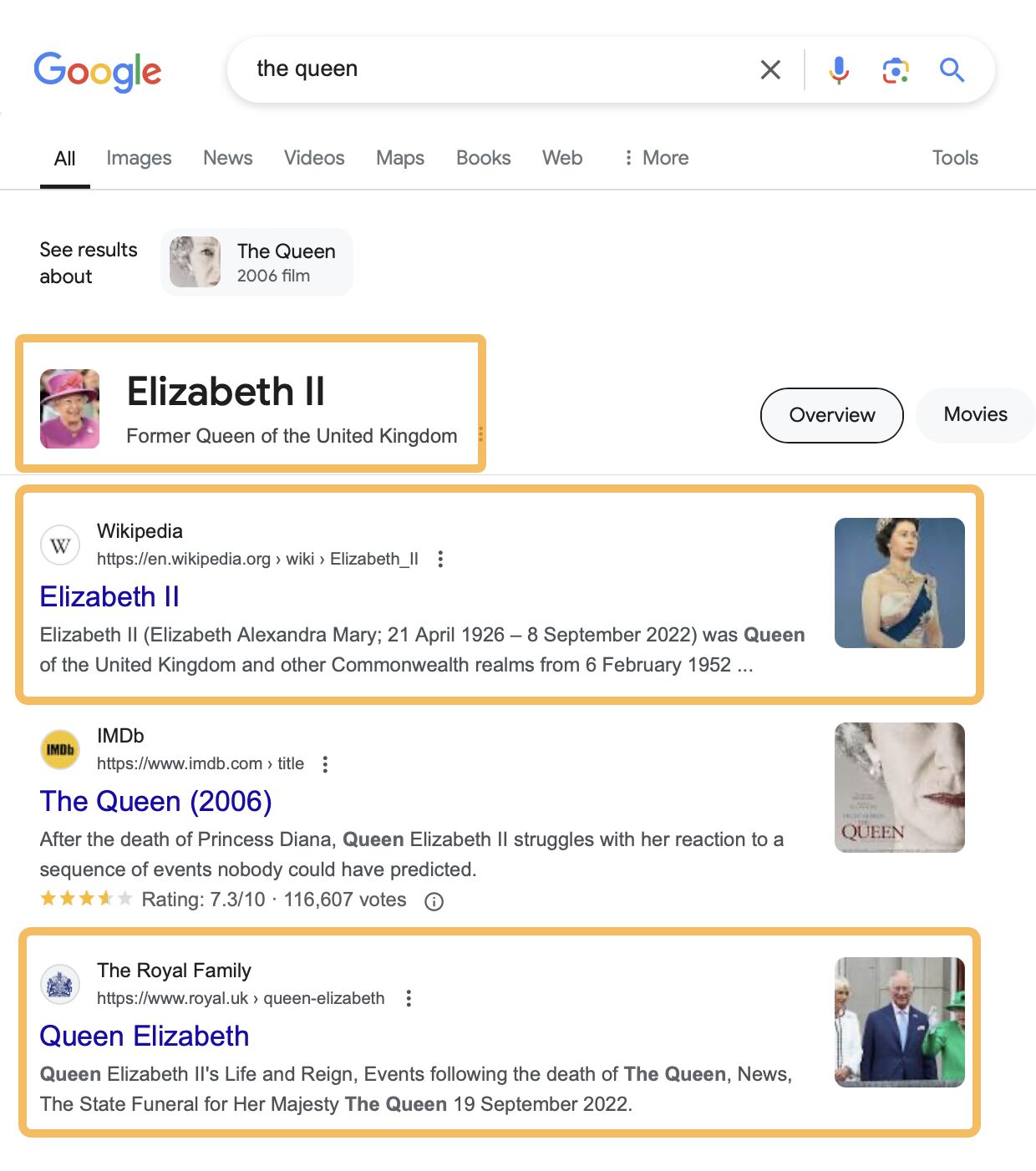

If we talk about LLMs these days, you’ll probably think I’m talking about large language models like GPT-3, GPT-4, GPT-4o, Gemini, Claude, and others.
But if we rewind the clock to a simpler time on August 7, 2022, using our Ahrefs’ SERP Overview, the dominant search intent was very different. It was focused on the LLM degree—a master of laws qualification.
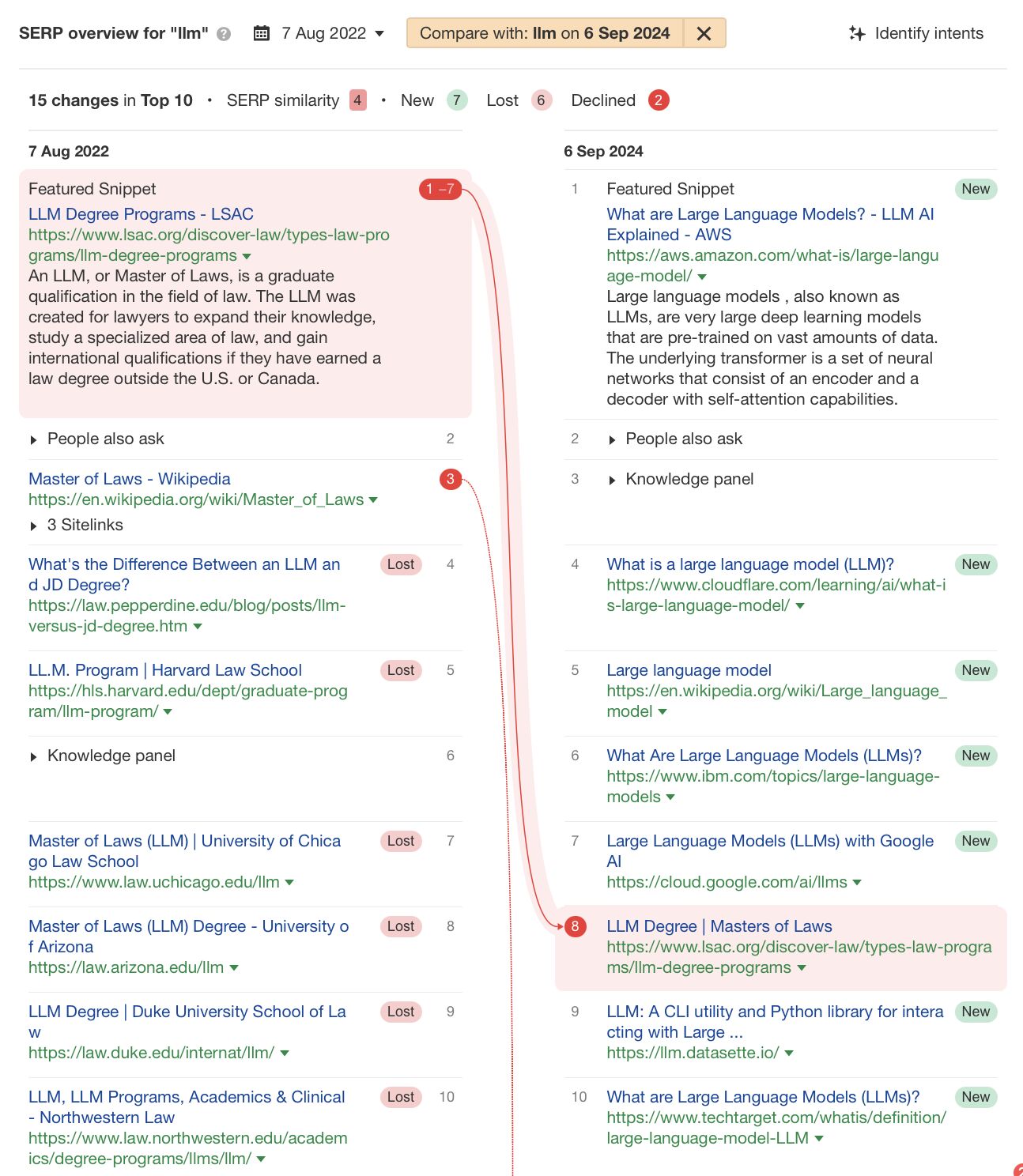

What happened?
The dominant intent for “LLM” in 2022 was for a master of laws qualification. ~49% of searchers were looking to understand the LLM degree, while ~35% were looking for Universities to study the LLM at.
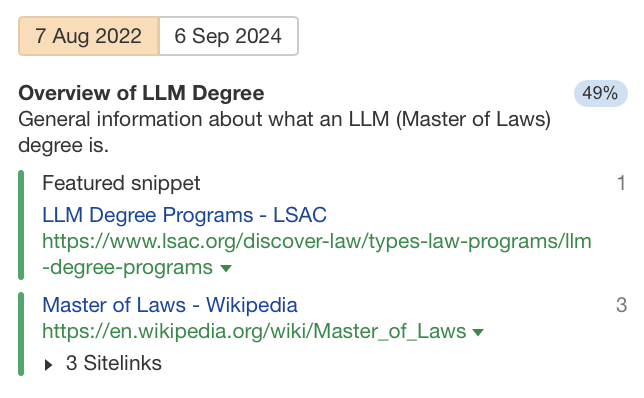

After the search intent shift, however, ~89% of search results were about understanding large language models, how they work, and their applications.
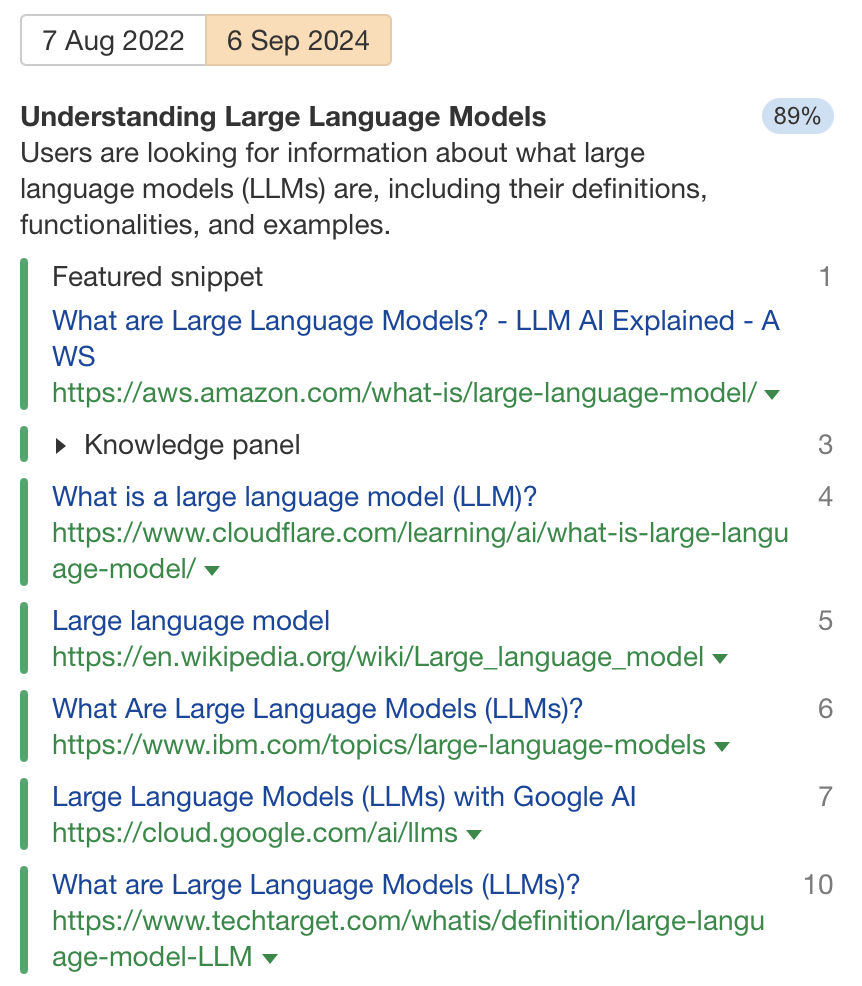

Is recovery possible?
No. It feels unlikely. The search volume increase for this term is directly related to the new meaning of LLM. We know this because the increase coincides with the release of ChatGPT on November 30, 2022.
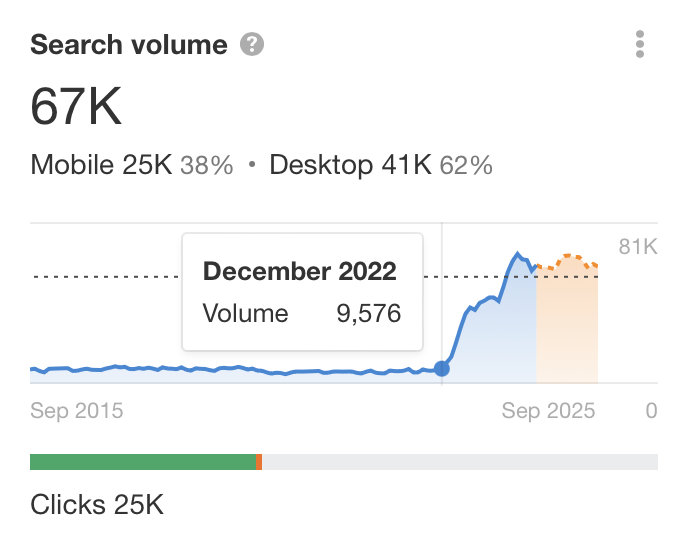

In this example, it wasn’t just a single website that was impacted as well, it was the replacement of an older acronym with a much more searched-for newer version.
This is a good example of where a new version of an acronym has shifted its dominant meaning to something new. Sometimes, search intent shifts can impact a whole category of websites, as in this example.
As you’re probably aware, “X” is the updated name for what many people still call Twitter, but before 2022, the X SERP was very different.
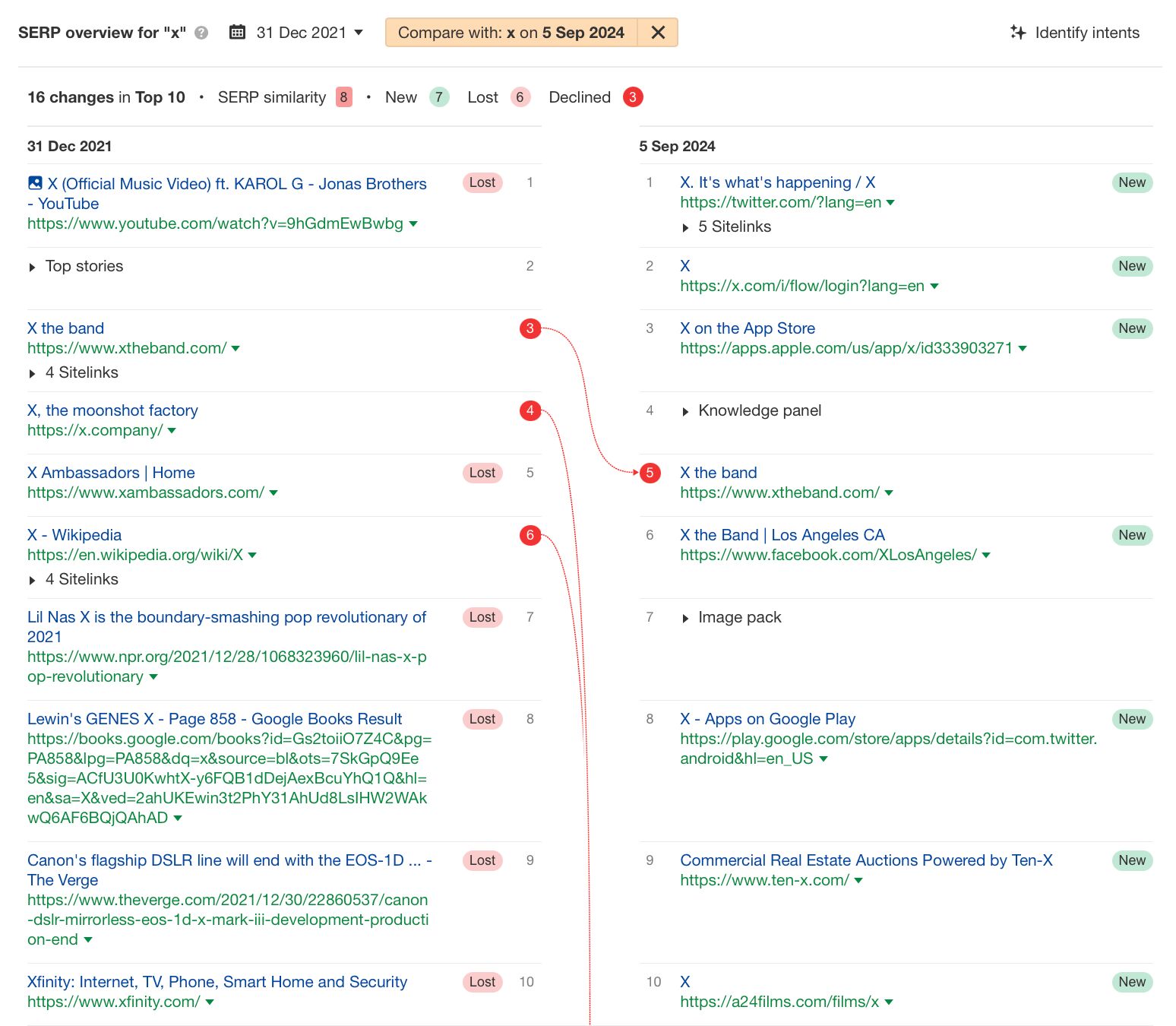

What happened?
In 2021, December ~59% of searchers were looking for information related to bands or music related to X
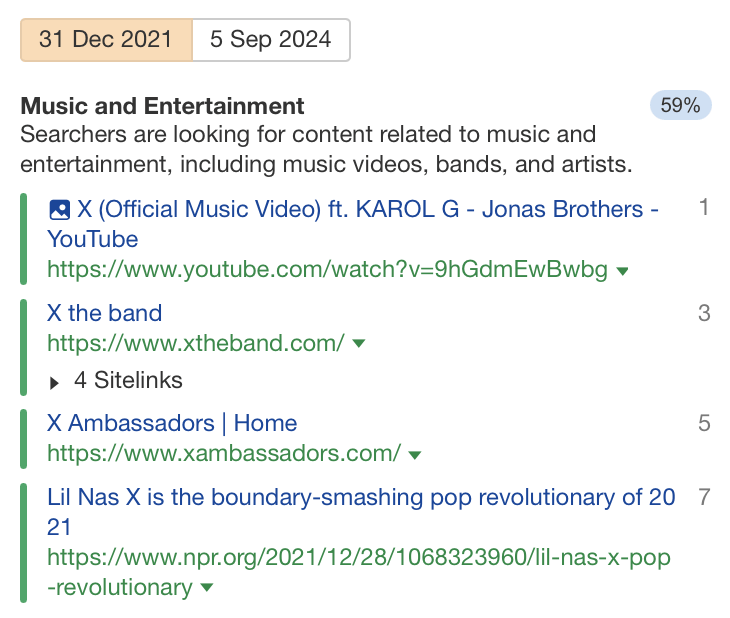

But by September 2024, ~93% were looking for X, Twitter’s updated name and only ~4% were looking for information relating to X, the band.
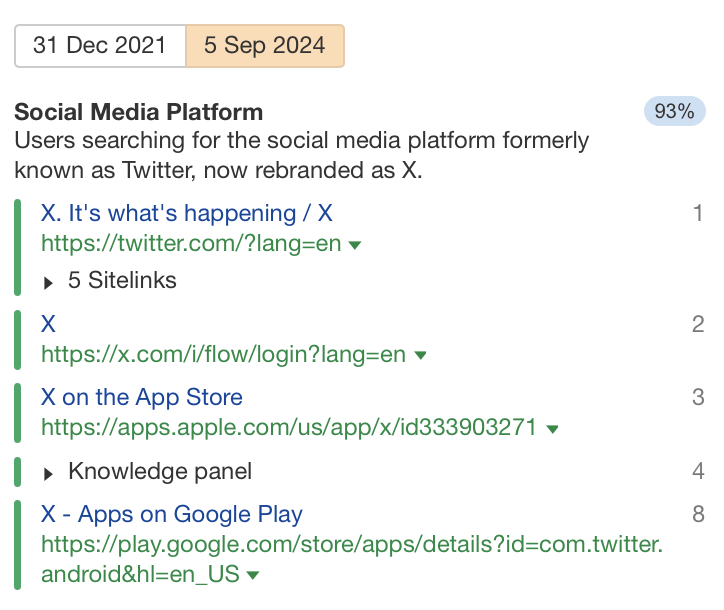

Is recovery possible?
“X” can be applied to many different things. The searches for a major social network through this keyword mean it will likely remain the dominant search intent for this keyword indefinitely.
The implication is that the other results will likely be relegated past page one as X [the former Twitter platform] strengthens its brand by creating more results in the SERPs.
High-ticket affiliate marketing is a type of affiliate marketing that focuses on referring visitors to more expensive products or services.
We wrote an article at Ahrefs on this topic a few years ago but noticed it had recently lost rankings.
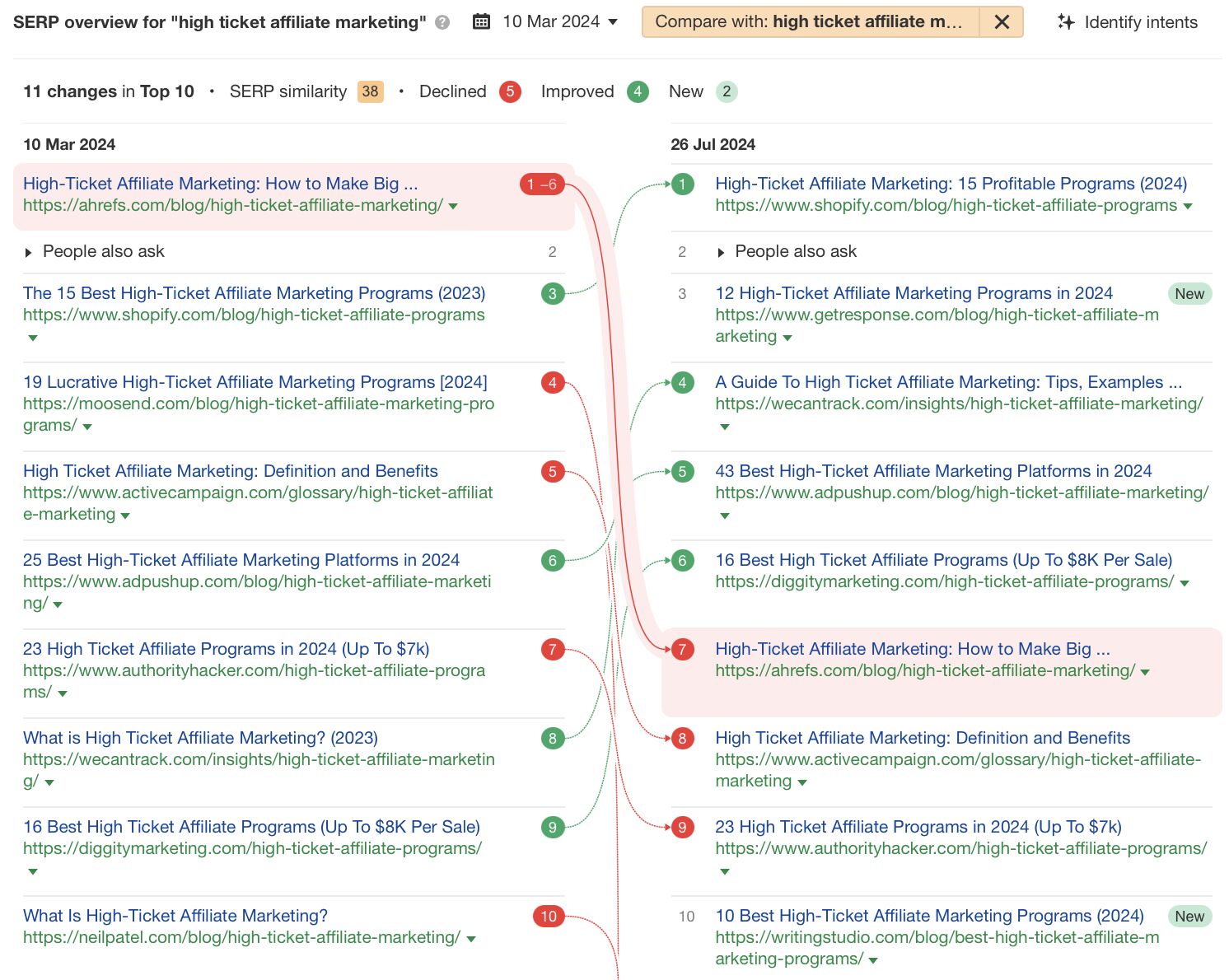

When I looked into the reasons for the drop in traffic, I noticed a shift in search intent from 59% understanding high ticket affiliate marketing.
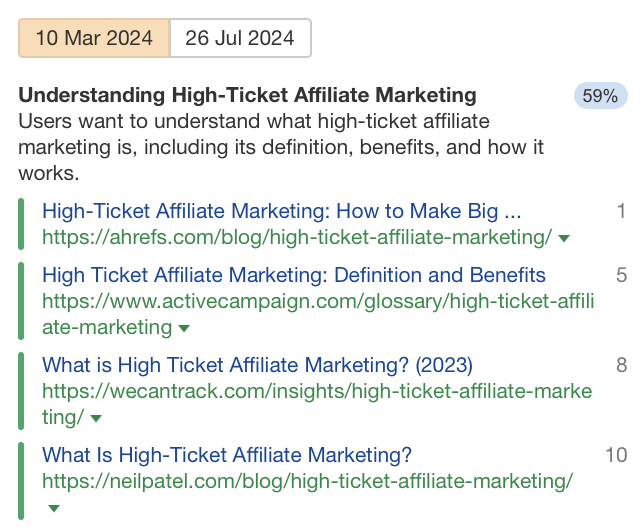

To 79% list of high-ticket affiliate programs. TLDR; the old article no longer served the new dominant intent.
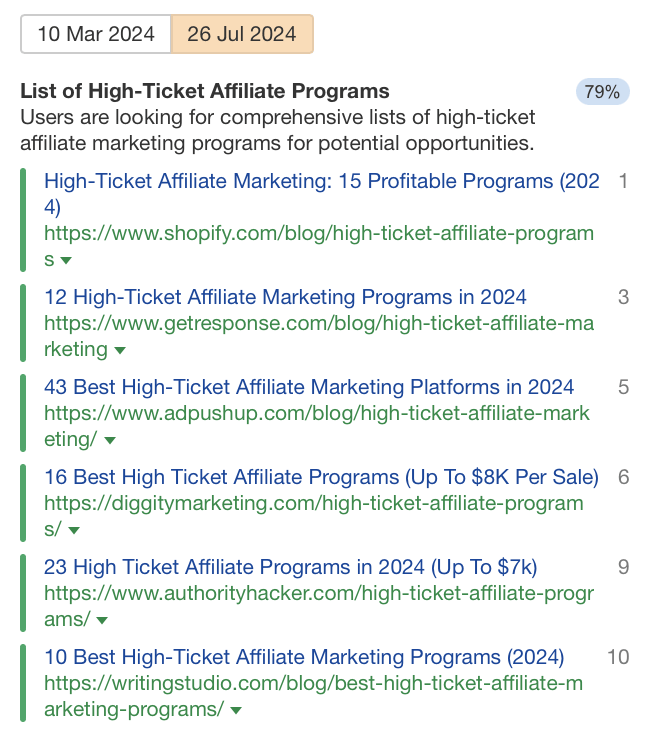

What happened?
The search intent had shifted from understanding the basics of high-ticket affiliate marketing to understanding the best high-ticket affiliate marketing programs. Although it may seem like a subtle shift, it was enough to tank our traffic for this keyword.
Is recovery possible?
Yes. For search intent shifts like this, rewriting the article is probably all you need to do. In fact, its what I did do, and even though it’s still early days, it’s started to show improvement already.
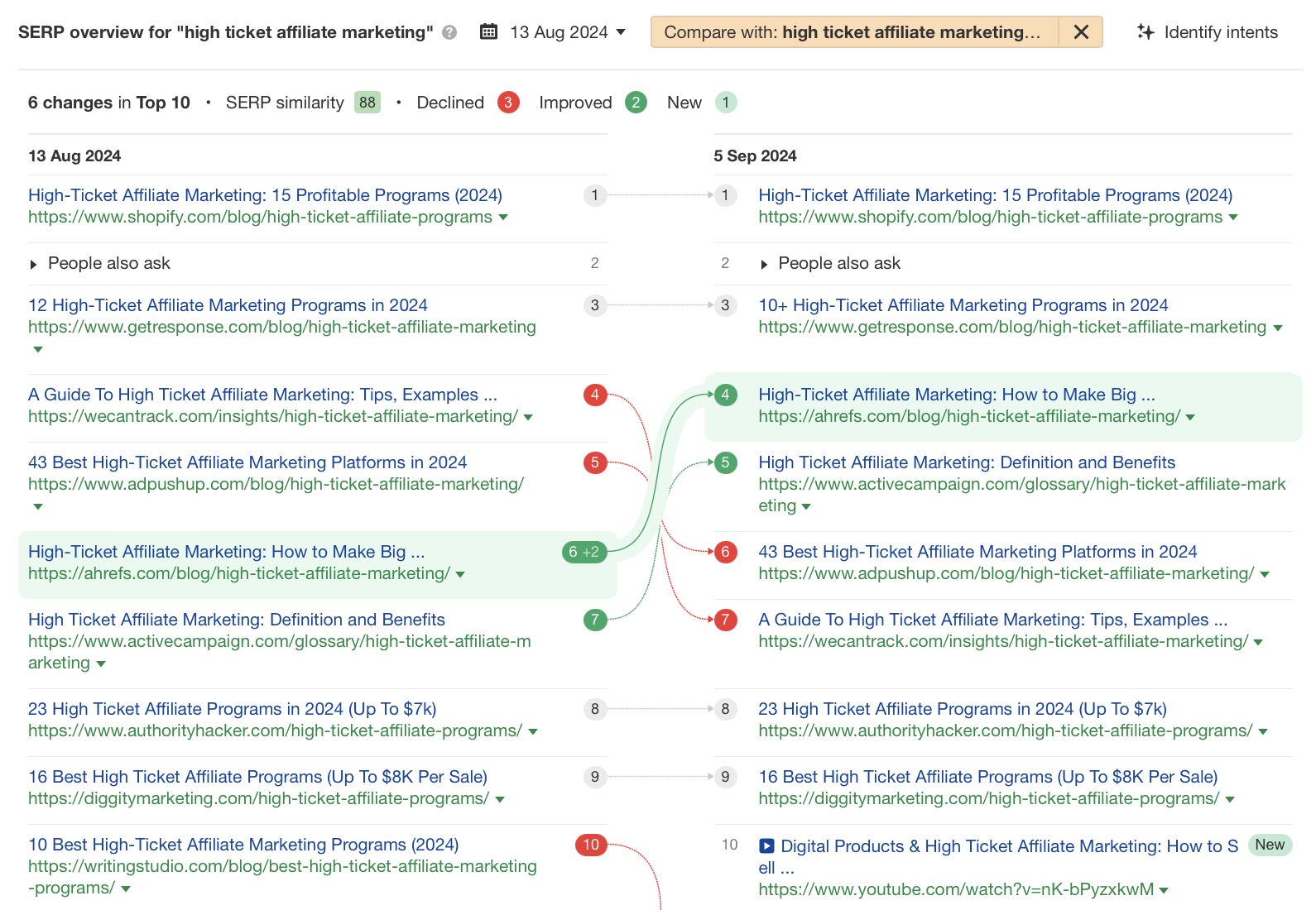

The search intent shift meant that our old article no longer matched the dominant intent, but by adding a section that covered some of the top high-ticket affiliate marketing programs, I was able to realign it for the most popular intent.
“Remarkable” used to be no more than a dictionary definition page for many websites, but following a new product launch for an e-ink tablet called the “reMarkable,” it created a search intent shift from a dictionary definition to a product.
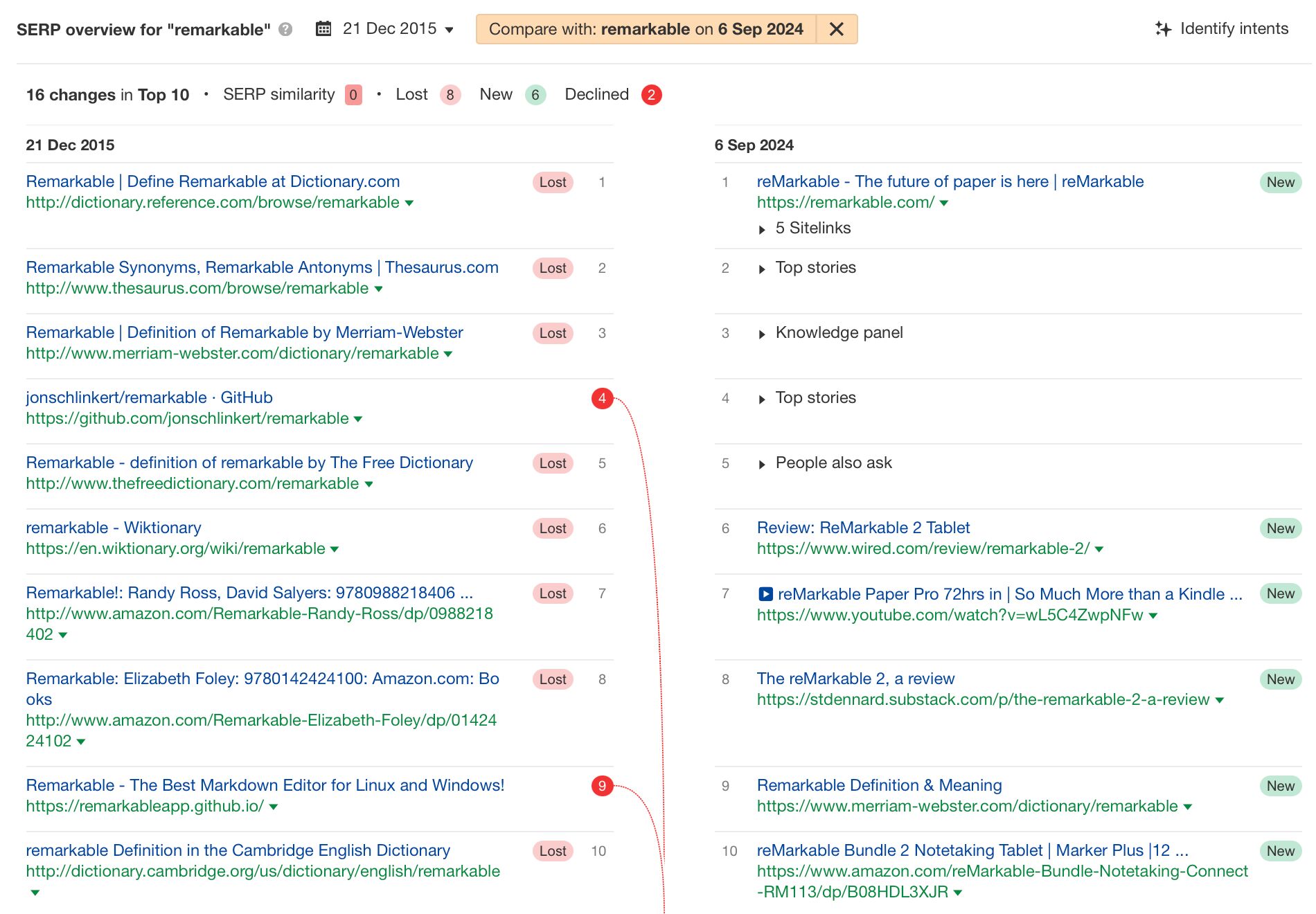

What happened?
Before the reMarkable tablet had been invented, the remarkable SERP was simple. ~75% of searchers were looking for the dictionary definition of remarkable. ~22% for looking for synonyms and antonyms for ‘remarkable.’
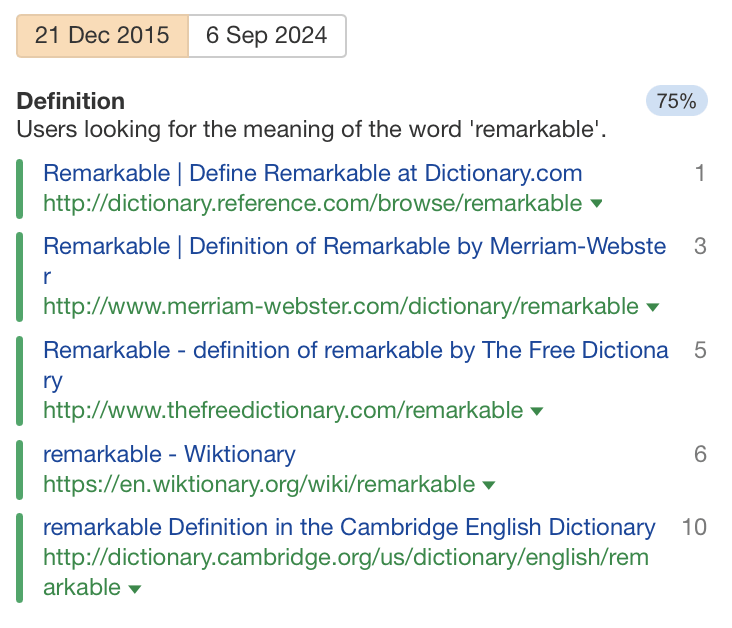

However, fast-forward to 2024, and ~75% of searchers are looking for product information on the reMarkable, while ~25% were looking for the latest news related to the reMarkable tablet.
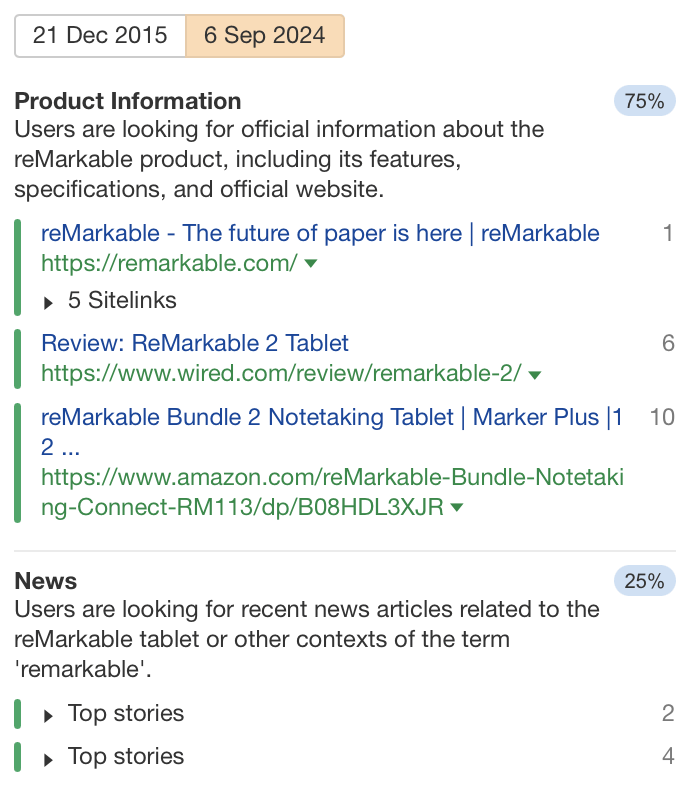

In 2024, less than ~1% are looking for a dictionary definition of the word remarkable—which itself is a remarkable search intent shift.


Is recovery possible?
Probably not. The dictionary definition websites are now past the first page. ReMarkable doesn’t seem like a company that’s going away any time soon, and even if they were bought by a larger company, it’s likely they would keep the brand name.
When a successful new product, like the reMarkable, causes a search intent shift for a keyword, it can reshape the search around its new meaning.
Another example of this is the keyword “apple.” Its most common meaning is as a fruit, but online the most common search intent is for the computer brand.
It’s an era that many of us would like to forget. Still, the keyword “corona” was a good example of a major search intent shift.
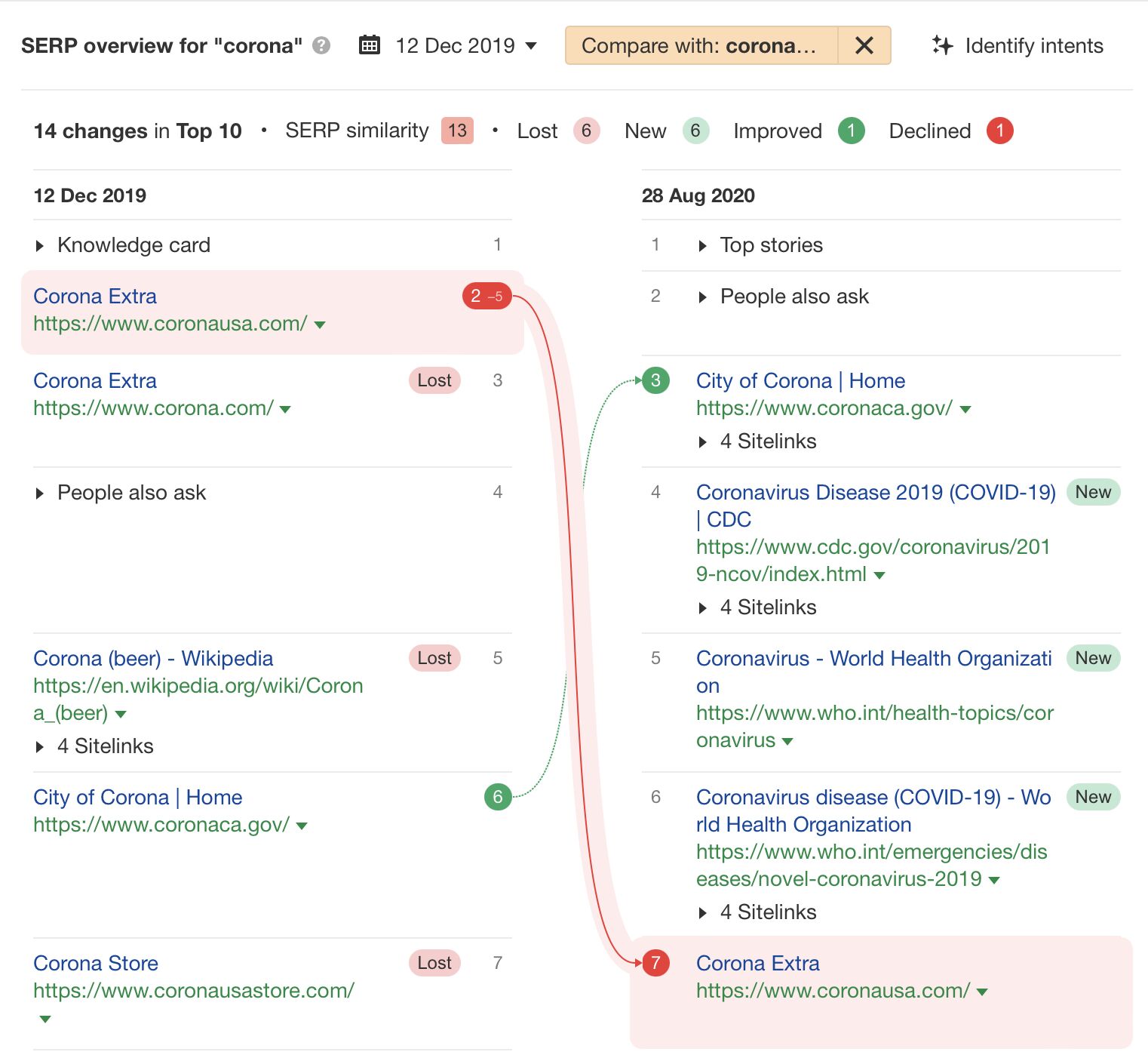

What happened?
The search intent shifted from ~62% looking for beer information to the new meaning—the virus.
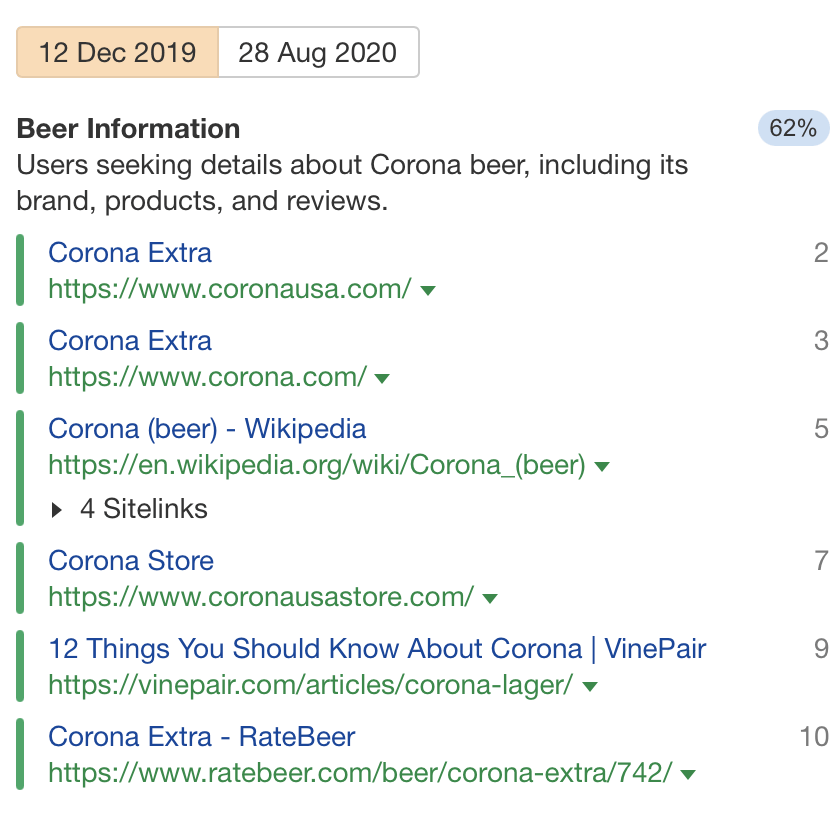

By 28 August 2020, ~45% of searchers were looking for the latest news on COVID-19, ~24% were looking for information about the city, and only ~7% were looking for Corona beer.
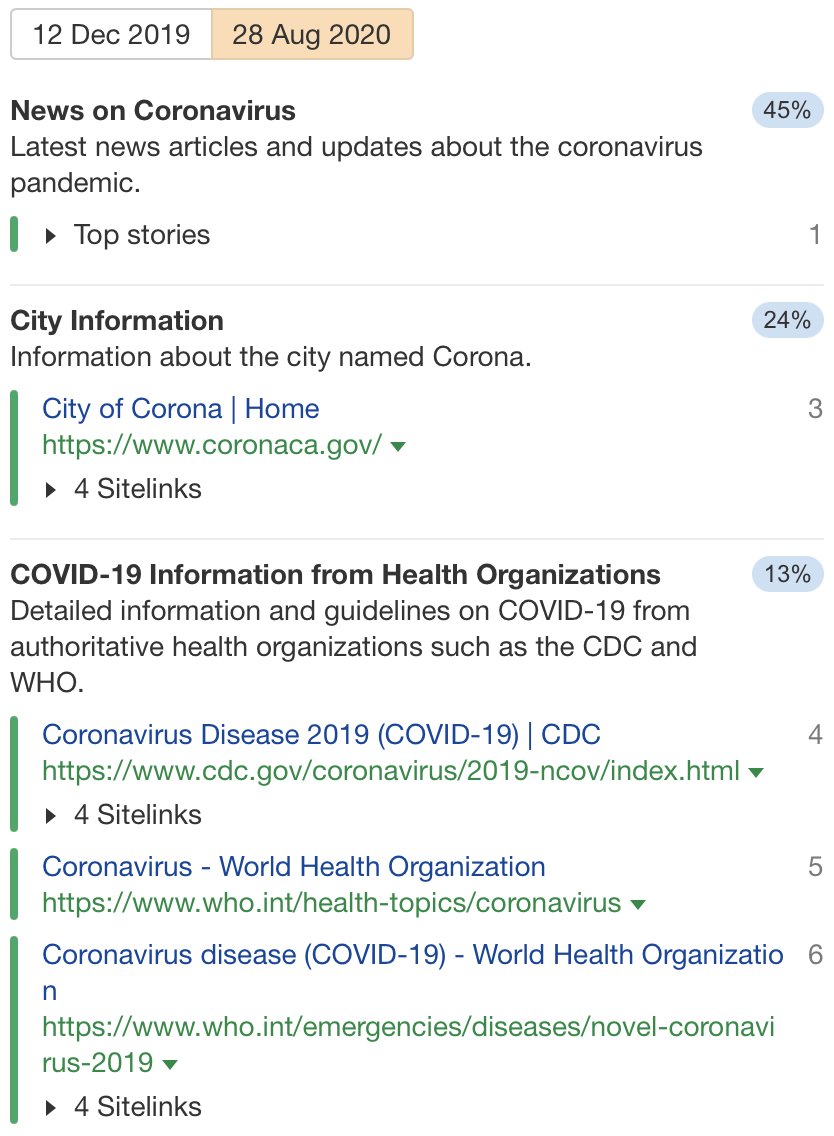

Is recovery possible?
Googling Corona today shows that recovery for Corona beer has already happened. In 2024, ~73% of searchers are now looking for brand information about Corona beer, and it has returned as the dominant intent for this keyword.
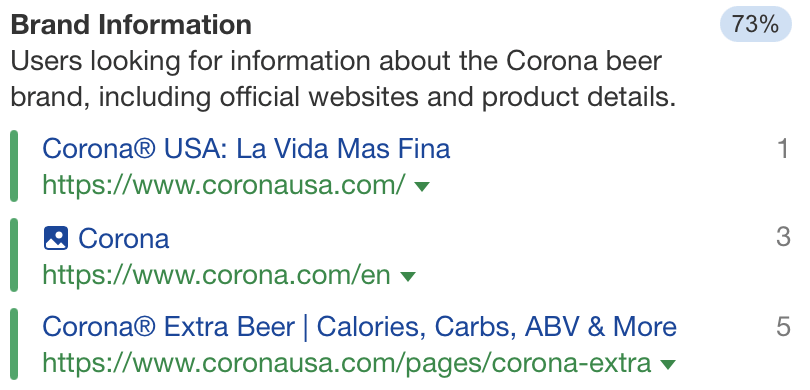

As we’ve seen, there are several common patterns of where search intent shifts can occur. Here are some common ways they can occur:
- Big news events – the news dominates the search results, displacing the previous results, e.g., the London Bridge terror attack displaced all results for “London Bridge”
- Popular trend – the trend and websites covering the trend displace the previous results
- Names of people – someone can become famous or more searched for, which can displace the previous results, e.g., Tate, King Charles, Elon
- Acronyms – acronyms can have multiple meanings e.g., Large language model (LLM) is now more searched for than a master in law qualification (LLM)
- New product releases – products can take the meanings of other things e.g., “remarkable”
- A shift in meaning – High-ticket affiliate marketing shifted intent from understanding what it was to just finding the best high-ticket affiliate marketing programs
Final thoughts
Google wants to provide the “best” answer for searchers. But it can’t do this unless it prioritizes the most popular search intent in its search results. The flipside is however, that this often means relegating less popular meanings past the first page of Google.
Has your website been impacted by a search intent shift? To be featured in this article when it’s next updated, share your story on search intent shift with me on LinkedIn.




